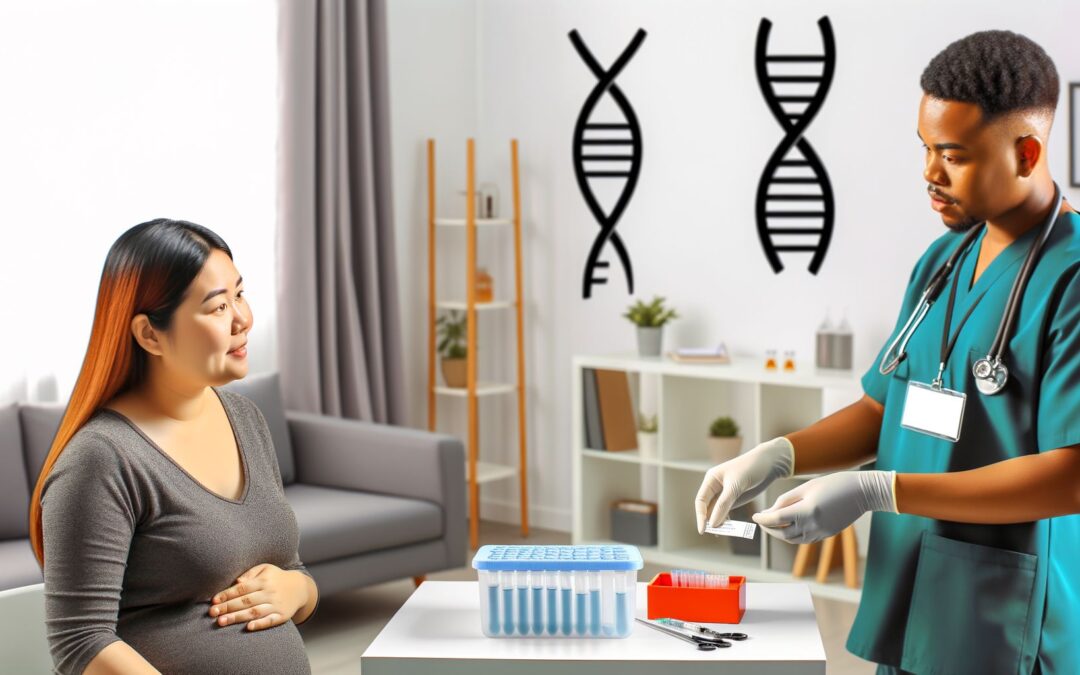Are you expecting a baby and have questions about paternity? Or perhaps you’re a concerned father looking for answers. Whatever your situation may be, understanding the process of a CVS paternity test can provide clarity and peace of mind. In this blog post, we will break down how a CVS paternity test works and address common misconceptions or FAQs.
How Does a CVS Paternity Test Work?
A CVS (Chorionic Villus Sampling) paternity test is a non-invasive prenatal test that can determine the paternity of an unborn child. It is typically performed between 10-13 weeks of pregnancy and involves taking a small sample of cells from the placenta for testing. This sample contains the same DNA as the baby and can be used to compare to the potential father’s DNA.
The procedure for a CVS paternity test is relatively simple and only takes about 15 minutes. The doctor will insert a thin tube through the vagina and cervix and into the uterus. A small amount of tissue from the placenta will then be extracted through this tube. The sample is then sent to a lab for analysis and results can typically be obtained within 3-5 business days.
Why Choose a CVS Paternity Test?
There are several reasons why someone may choose to have a CVS paternity test done:
- Early DNA testing accuracy: CVS paternity tests are highly accurate, with a reported accuracy rate of over 99%. This means you can have peace of mind early on in your pregnancy.
- Non-invasive: Unlike other prenatal paternity testing methods, a CVS test does not pose any risk to the mother or the baby. It is a safe and non-invasive procedure.
- Legal paternity testing: A CVS paternity test can be used for legal purposes, such as establishing paternity for child support or custody cases.
Common Misconceptions or FAQs
- Myth: A CVS paternity test can harm the baby.
- Fact: CVS paternity tests are considered safe and do not pose any known risk to the mother or the baby. However, as with any medical procedure, there is a small risk of infection or miscarriage.
- Myth: A CVS paternity test is 100% accurate.
- Fact: While CVS paternity tests have a high accuracy rate, there is still a small chance of error. In rare cases, a retest may be necessary for confirmation.
- Question: How soon can I get a CVS paternity test done?
- Answer: A CVS paternity test can be performed as early as 10 weeks of pregnancy.
Summary
A CVS paternity test is a safe and accurate method for determining the paternity of an unborn child. It involves taking a small sample of tissue from the placenta and comparing it to the potential father’s DNA. This can provide early answers and peace of mind for expecting parents or concerned fathers. However, it’s important to remember that these tests are not 100% foolproof and may require a retest in some cases.
This blog post is for informational purposes only and does not replace professional medical or legal advice.
Ready to Get Answers?
If you’re considering a non-invasive prenatal or legal paternity test, Pro DNA Lab is here to help. Our team of experienced professionals is dedicated to making DNA testing simple, private, and accessible for families who need clarity and peace of mind.
- 📞 Call us at (866) 644-4362
- 🌐 Visit: https://prodnalab.com
- 📧 Email: info@prodnalab.com
Author: Marvin Thomas
Founder of Pro DNA Lab
Marvin leads Pro DNA Lab with a mission to make DNA testing simple, private, and accessible for families who need clarity and peace of mind.


